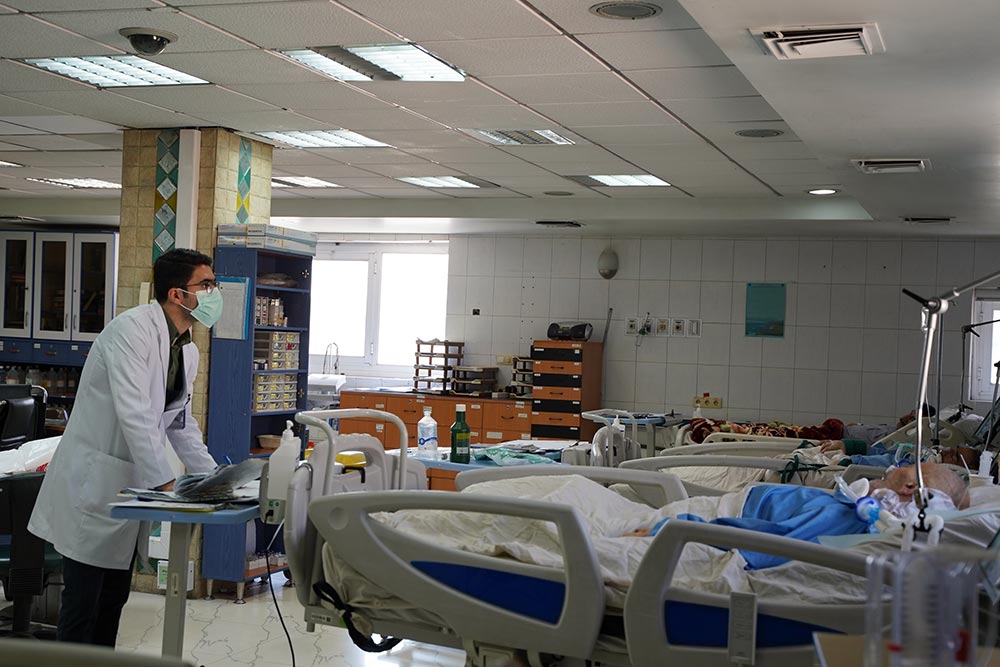
Introduction
Noncommunicable diseases (NCDs) pose a significant burden on the health and well-being of the population in the Islamic Republic of Iran. To address this challenge, the Iranian Noncommunicable Diseases Committee was established by the Ministry of Health and Medical Education in 2014. This initiative, characterized by high-level commitment and a multisectoral approach, played a crucial role in combating NCDs at a policy level.
In collaboration with WHO, the committee developed a comprehensive national action plan. Once the plan was ratified by the Supreme Council for Health and Food Security, all governmental sectors, including 11 ministries and national organizations such as the ministries of agriculture, education, sports and youth, joined forces to endorse and implement the proposed interventions outlined in the NCD action plan. This unified effort demonstrated the dedication of the Iranian government to effectively address NCDs and improve the health outcomes of its citizens.
Context
The Iranian health system has a well-structured network comprising 1810 comprehensive public primary health care centers and 3054 public health posts, catering to distinct catchment populations in both rural and urban areas. Moreover, an additional 303 private primary health care centers and 1674 private health posts were strategically positioned throughout the country to deliver essential health services. NCDs took a heavy toll on Iran's population, accounting for a staggering 83% of all deaths in 2018 and emerging as the primary causes of illness and death. The prevalence of NCD risk factors was alarmingly high, with notable figures reported in Iran. In 2016, approximately 14% of the total population were identified as current tobacco smokers, while around 67% were classified as obese or overweight. Moreover, approximately 26% of the total population exhibited elevated blood pressure levels. Recognizing the urgent need to address NCDs, the Ministry of Health and Medical Education launched the Health Transformation Plan in 2014, outlining the prioritization of NCD prevention and control as a national agenda.
Initiative
In recognition of the increasing impact of NCDs, the Ministry of Health and Medical Education created the Iranian Noncommunicable Diseases Committee in 2014. The committee comprised members from various governmental bodies and played a pivotal role in policymaking, regulation, scientific research and planning related to NCDs. It served as a decision-making body within the Ministry and facilitated the control and prevention of NCDs. The committee's responsibilities include formulating and strengthening national policies, prioritizing NCDs across governmental entities, planning monitoring measures and assessing national progress.
The Iranian Noncommunicable Diseases Committee operates under the auspices of the Supreme Council of Health and Food Security, a public policymaking mechanism led by the President. This collaboration enables the committee to provide technical support on NCD-related policymaking. Additionally, a subnational mechanism has been established at the provincial level, encompassing working groups in all 31 provinces, led by governors.
Impact
The Iranian Noncommunicable Diseases Committee has set national targets for NCDs and developed a comprehensive NCD action plan. This plan serves as a blueprint for interventions aimed at tackling NCDs at various levels. Subsequently, universities of medical sciences at the subnational level have developed their own action plans aligned with the national strategy.
The committee strives to fully implement the planned interventions by closely monitoring and evaluating their effectiveness. A results-based approach allows for the extension or revision of interventions based on evaluation outcomes. Establishing robust surveillance systems, monitoring and evaluation mechanisms, and visualizing expected results have enabled stakeholders to understand the current situation, set targets and plan appropriate interventions.
Lessons learnt
Political commitment. The unwavering political commitment at the highest national level has played a crucial role in facilitating the implementation of policy-level interventions, embracing a multisectoral and multi-stakeholder approach.
Multisectoral dialogue. The collaboration between the Iranian Noncommunicable Diseases Committee and the Supreme Council of Health and Food Security has fostered multisectoral dialogue and cooperation across the government. This approach adopts a "health-in-all-policies" perspective, recognizing the integral role of health in various sectors such as agriculture, trade and urban planning.
Monitoring. The establishment of robust surveillance, monitoring and evaluation systems, along with visualizing expected outcomes, has empowered stakeholders to gain a comprehensive understanding of the current situation and future objectives. This has facilitated the setting of targets and the planning of appropriate interventions to achieve desired outcomes.
Opportunities
The strong commitment demonstrated by the Ministry of Health and Medical Education, in collaboration with other governmental entities, and the support received from the President through the Supreme Council of Health and Food Security, played a pivotal role in recognizing NCDs as a critical national concern.
The recognition of NCDs as a priority created an opportunity to develop a comprehensive national NCD action plan, enabling a coordinated and strategic approach towards addressing NCDs.
Multisectoral engagement emerged as a crucial factor in the successful implementation of the national action plan, leveraging the dedication and involvement of various sectors and stakeholders.
There was an opportunity to empower subnational and local managers engaged in NCD prevention and control programmes through the establishment of national capacity-building initiatives.
A specialized skill-based course was designed to cater to the specific needs of subnational and local managers in NCD prevention and control. This course aimed to enhance their knowledge and skills, equipping them to effectively manage NCDs.
Ten courses were conducted as part of the capacity-building programme, providing participants with the necessary tools and expertise to tackle the challenges associated with NCDs.
References
Noncommunicable diseases country profiles 2018
STEPS country report Iran 2016
Story originated in 2021.


